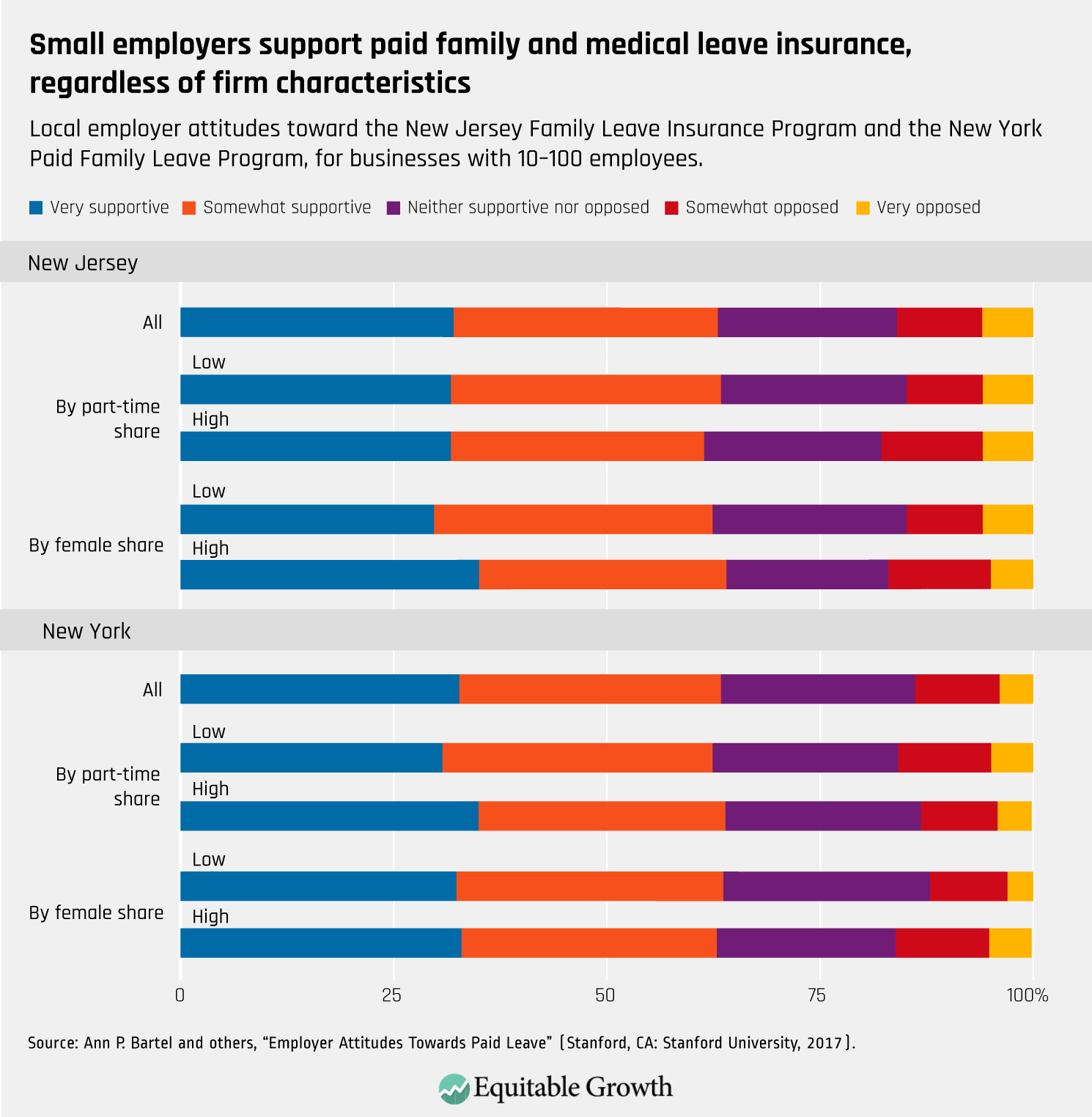Weekend reading: The “family policy is economic policy” edition
This is a weekly post we publish on Fridays with links to articles that touch on economic inequality and growth. The first section is a round-up of what Equitable Growth published this week and the second is the work we’re highlighting from elsewhere. We won’t be the first to share these articles, but we hope by taking a look back at the whole week, we can put them in context.
Equitable Growth round-up
In a new report for Equitable Growth, Elisabeth Jacobs explores the evidence from the United States on the need for paid family and medical leave and surveys a wide range of literature that examines the impact of paid leave on the U.S. labor market, health outcomes, and broader macroeconomic consequences. The report lays out a research agenda designed to accelerate the evidence base for state and federal policymakers. You can read the full report here, and its key takeaways here.
Alix Gould-Werth unpacks the findings of a new paper by Kristen Harknett of the University of California, San Francisco and Daniel Schneider and Matthew Stimpson of the University of California, Berkeley into the negative impact of the decline in economic well-being and the rise of incarceration on marriage rates. While some policymakers call for the promotion of marriage to combat its decline among less-educated Americans, Gould-Werth explains that this research suggests such calls are putting the cart before the horse. “If policymakers instead start by improving economic circumstances, rates of marriage are likely to increase,” she writes. “This could lead to a virtuous circle, in which people have the resources they need to form the families they desire, which, in many cases, may further bolster their economic circumstances or insulate them from economic hardship.”
Check out Brad Delong’s latest worthy reads from Equitable Growth and around the web.
Links from around the web
University of Massachusetts Amherst economist and Equitable Growth grantee Arindrajit Dube proposes an update to the Earned Income Tax Credit to expand it to people without earnings. Dube estimates that about 35 percent of the benefits of this expansion of the current EITC program would go to people in extreme poverty and it would cost less than other proposals to expand the program. [the hill]
Senator Cory Booker (D-NJ) is introducing legislation to create “American Opportunity Accounts” to ensure all children have at least a small nest egg they can count on at age 18. The idea is similar to the “baby bonds” proposed by Professors Darrick Hamilton of the New School and Sandy Darity of Duke’s Sanford of Public Policy, respectively, both of whom also are Equitable Growth grantees. [vox]
Economists do not agree on what explains the persistently sluggish growth in wages in the U.S. economy despite low unemployment rates. Ernie Tedeschi walks through the various hypotheses and examines where the data supports them or doesn’t. [nyt]
A new report from Georgetown University found that in the United States there are currently around 13 million jobs requiring only a high school degree and paying at least $35,000, but that three-quarters of them belong to men, highlighting the persistence of occupational segregation. [wapo]
The common narrative about what areas of the United States are experiencing economic growth generally assumes that wage growth is stronger in urban areas than in rural areas, but that simplistic explanation belies the variation between and within regions. While median wages and salaries are higher in urban areas, wage growth between 2001 and 2016 was actually above the national average in rural counties while urban counties had below-average gains. [city lab]
Friday Figure

Figure is from “Paid Family and Medical in the United States: A Research Agenda” by Elisabeth Jacobs

